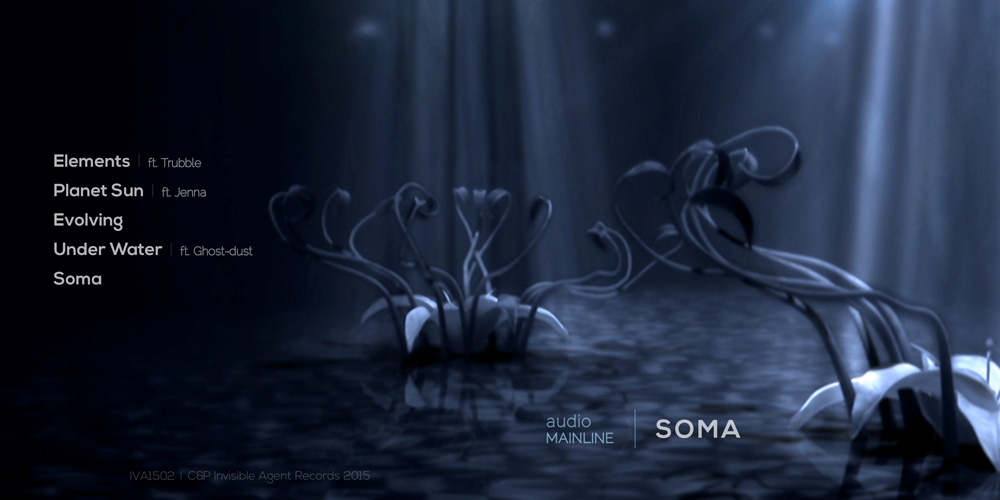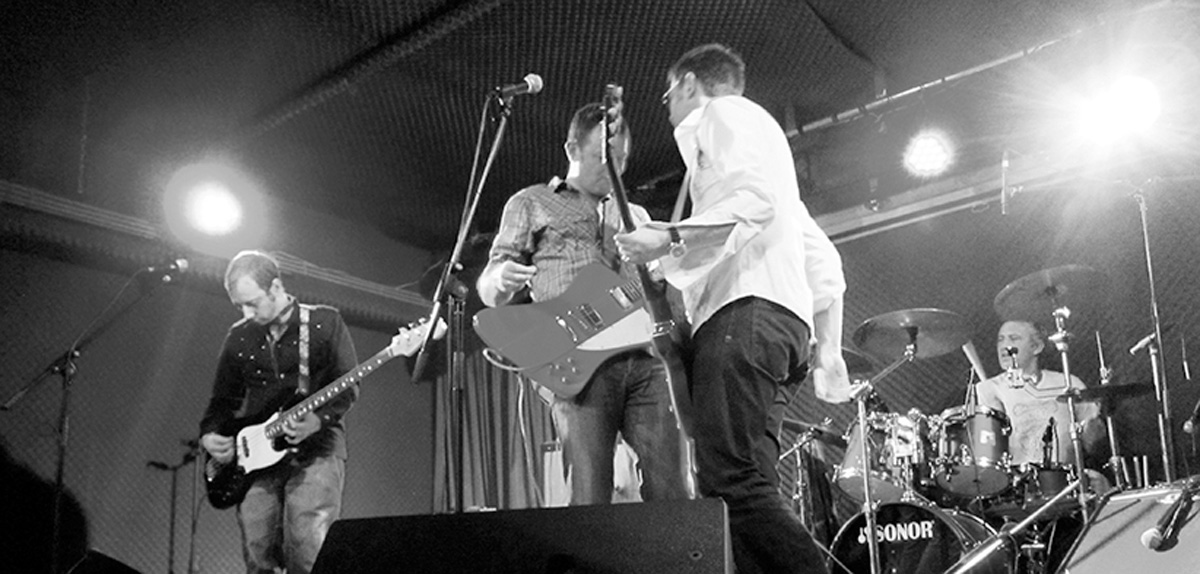Riz Farooqi, vocalist for the Hong Kong hardcore band King Ly Chee, should have more chips on his shoulder than a poker table at Naga World. Riz is Pakistani by ethnic heritage and his parents are devout Muslims. Yet, despite being Pakistani and growing up in China, English is Riz’s first and native language. He has never fit into the society in which he grew up, and he’s used to having to struggle with people who don’t understand him.
It is no mere coincidence that his band recently released an album titled CNHC. The CN stands for China, the HC stands for – you guessed it – hardcore. It’s a hardcore affectation that’s been scrawled as graffiti on bathroom walls or merchandised at shows as t-shirts. It was used first (or if not first, then most famously) in New York as NYHC.
Hardcore is a musical genre that formed as an offshoot of punk. It still shares some commonality with traditional punk, but over the years it mutated and evolved to the point where it had its own distinct sound. By the late ‘80s there was a definite metal influence on hardcore’s style of guitar-playing, as well as its haircuts. Today, hardcore has its own family tree of sub-genres, some of them arguably more popular than hardcore ever has been. Metalcore, for instance, likely has a lot more current listeners than traditional hardcore.
King Ly Chee has been an active band since 1999, with four albums out and a number of tours of Asia under its belt. When the group started out 16 years ago, there was no awareness of hardcore in Hong Kong, and very little going on generally with underground or alternative music. Riz first got into hardcore when he attended the University of Massachusetts at Amherst in 1994.
In that same year, I was in America, running an all-ages DIY venue for punk and hardcore shows with the singer of the band Bloodline, which headlined that first show I’d attended. I was a bit precocious, without a doubt, but hardcore is a participatory culture. It requires its fans to be the creators of the music or the organisers of the shows, because if they don’t take it upon themselves to do it, nobody else will. There’s no real money in it, and it has little mass appeal or commercial potential. DIY as an ideology isn’t about home improvement. The Do It Yourself ethic is about having an independent streak – about creating instead of just contemplating – and it is often accompanied by an anti-capitalist conviction that music (and art in general) should be created for the sake of self-expression, not just to make money.
With that in mind, how exactly does one go about growing a music scene into something vibrant, exciting, and sustained by the efforts of the fans? Riz shared his thoughts on what he believes is necessary to develop a more active underground music scene in Cambodia. He’d be the first to tell you that he hasn’t achieved the total results he’d hoped for in Hong Kong to date, but his 16 years of experience nonetheless give him a great deal of insight into the subject.
1. We need more bands.
“The best thing to do is to get more bands started,” Riz says. “Then those bands will inspire even more people to start their own bands. The more bands you get going the more they will want to get better than the next band as a way of friendly competition and that helps improve songwriting and raises the standards. As these bands play shows together, over time, a community forms around them.”
When Riz asked for my help in setting up King Ly Chee with a show here in Phnom Penh, my first thought was: who the hell do I get to play with them? While shows with bands from disparate genres can be fun and are a good way to cross-pollinate the fan bases of those different genres and groups, the most effective way to get people to show up for a touring band that they aren’t familiar with is to give them strong local support in the form of a local band that already has a following. And, in order to maximise the possibility that the local band’s fans will in turn become fans of the touring act, they should have a similar sound.
For this reason, I asked Sliten6ix to open as they are, if not hardcore precisely, the most well-known “heavy” band in Cambodia. They have also been more or less defunct for over a year now, after they parted ways with their original guitarist. In the intervening year, the bassist also left to join another band. Sliten6ix, in order to play, needed a bassist and guitarist. We managed to get it done, but having to bring a band out of retirement just to put a bill together for a show speaks volumes about the current state of alternative/underground music in Cambodia.
2. These bands need to write and play their own songs. Covers should be a fun rarity, not the entire set list.
“Cover songs are not your songs,” Riz says. “No matter how much you can connect to someone else’s song, it’s still someone else’s song. So when you’re playing someone else’s song and the crowd is going wild, you have to realise how much cooler it would be if the crowd was going wild screaming the words to a song whose words came from your heart, based on your feelings and thoughts.”
Cover bands do not encourage the growth of a music scene in the same manner as bands playing their own original music. They can be fun to watch and entertaining and all that, but some kid isn’t going to watch you play a Beatles tune and think to themself, “I want to be like THAT guy!” They are going to think, “I want to be like John Lennon, and so does that guy!” They come away with the impression that live music is for rank amateurs who don’t even know how to write their own songs. They aren’t watching John Lennon perform live, they do not get to meet him after the show and talk about other bands that John Lennon likes, and it doesn’t matter how note perfect your cover is, because you aren’t him or Paul McCartney or George Harrison. Hell, you’re not even Ringo. Not even close. Those guys are all still remote as the Gods perched on Mount Olympus to a bunch of kids looking to be inspired. And in order to inspire kids to form their own bands, we need to do so ourselves.
3. Should teens be hanging out in dive bars? Even in Cambodia?“
Once you’ve got bands going you gotta find a place to play,” Riz says. “Then book your own shows, put out your own music, get it up online and spread the word. There’s a reason people outside of Cambodia don’t know anything about Cambodian heavy music – and it’s up to YOU guys to change that.”
Teenagers who are 18 years old can go wherever they like. But it’s better if they are exposed to the live music scene a few years earlier than that, if possible. The existence of a safe, clean, welcoming, and wholesome all-ages music venue willing to let bands play, whose music is none of the above, is perhaps an unachievable pipe-dream. But with the number of NGOs operating here, you’re telling me that not one of them has any kind of community centre that they’ve opened in Phnom Penh? Nothing like that? Perhaps somebody could start an NGO, solicit donations internationally, pay themselves a salary out of those donations, and use the rest to open a community centre that has a performance space where bands could play, including teenagers’ newly formed bands. Just a thought, if anybody out there is tired of teaching.
4. What kind of bands do we need more of?
“The ‘sound’ doesn’t matter as much as the heart and attitude,” says Riz. “I’ve seen some pretty amazing bands in the States that absolutely were hardcore at heart, if not in their sound.”
It would be nice to see any kind of bands forming, so long as they’re playing original songs. Personally, I would like to hear and see more music from the extreme or alternative genres being played. But ultimately, as Riz says, it doesn’t matter so much what a band sounds like, rather, how the band thinks and how they do things. Are they independent? Passionate about what they believe in and their music? It doesn’t matter so much whether the music generated by all of these young pioneers is hip hop or hardcore. It’s more important to the future of arts in the city that it be original and – hopefully sooner rather than later – actually good.
King Ly Chee will play at 8pm, Wednesday June 17 at Show Box, #11 St. 330 with Sliten6ix as part of their Asia tour.









